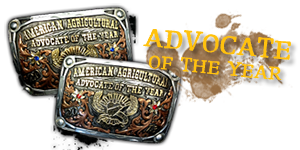Farm cheese is made in the traditional, traditional way, for a large part even by hand. The cries ‘traditional’, ‘artisanal’ and ‘handmade’ are commonplace these days. We will, therefore, try to make clear what distinguishes farmhouse cheese from other cheeses.
Traditionally, raw milk cheese is described with the protected term “farmer’s cheese”. It means that the Food and Commodities Act requires that if you put “farmhouse cheese” on cheese, it must be made from fresh, raw milk. However, variations on this term are not protected, and that starts the confusion for many.
What is raw milk cheese
Cheese with raw milk is made from milk that is not heated above 40 c. As a result, certain enzymes and microorganisms contained in the milk are not lost. During the ripening process, these micro-organisms do their work in the cheese and it gets its unique taste. Raw milk cheese often tastes spicier, fuller and has a slightly sour aftertaste.
Farm cheese versus factory cheese
Farm cheese and factory cheese clearly differ from each other, both in terms of preparation and taste (although the taste is a result of the preparation). The most important differences are in the preparation, treatment and fat content.
The preparation
The first difference is that cheese from the farm is prepared and matured manually. The cheese master stirs the cheese manually with the curd and lets it mature at his own pace. The farmers work with a feeling for and dedication to cheese, without losing sight of the current hygiene rules. Factory cheese is prepared by machines.
The treatment
Fresh milk from the cows is used to prepare farm cheese. This milk does not receive heat treatment, unlike factory cheese where this is the case. The almost untreated, raw milk gives the cheese of the farm its powerful and characteristic taste. The milk for factory cheese is first heated to 65 degrees Celsius for a few seconds, to kill bacteria. This pasteurization gives the producer more control over the end product.
The fat content
Another difference is the fat content. The fat content in farm cheese varies because it is a natural product that is not standardized. The differences in cow, soil, grass, feed and milk from the spring, summer and winter give the variations in fat content and taste. Factory cheese is standardized to a fixed fat percentage. That gives consistent quality and taste, which is required for mass production.
Types of farmhouse cheese
Enthusiasts immediately taste the difference between factory cheese and farm cheese. Farm cheese stimulates your taste buds because the traditional method of preparation makes farmhouse cheese never taste the same. The cows that walk outside in the summer and eat fresh grass produce different milk than when they are kept in the stable in winter. The changing flavors make this cheese so interesting.
Can you eat farmhouse cheese if you are pregnant?
You can eat farmer’s cheese if you are pregnant, provided that this cheese has a hard structure. A hard farmer’s cheese can contain listeria, but it does not survive because of the low moisture content of the cheese. However, semi-hard and soft cheeses should not be eaten during pregnancy.
